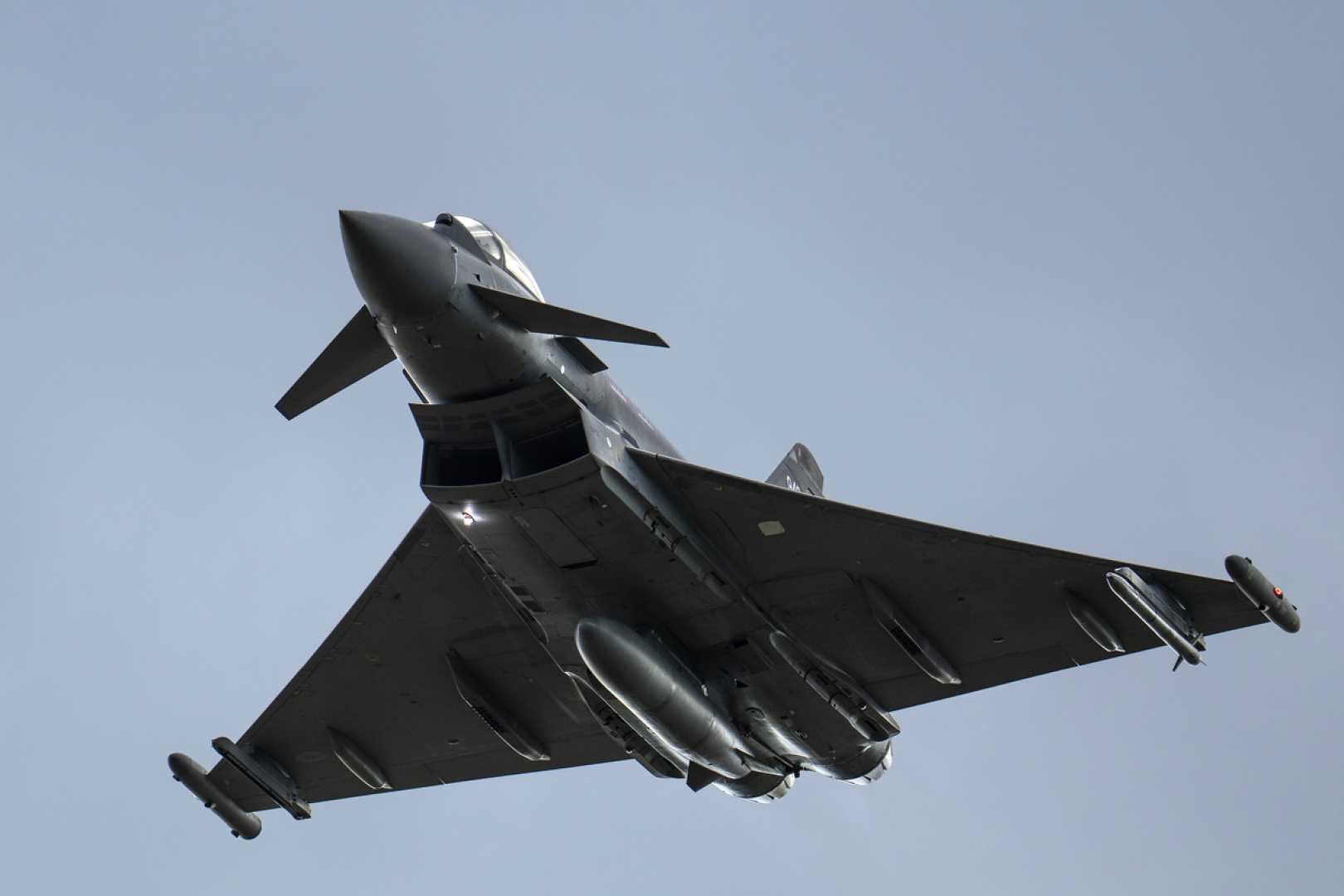News
British RAF Jets Intercept Russian Aircraft Near NATO Airspace

LONDON, U.K. — British Royal Air Force (RAF) Typhoon jets intercepted two Russian aircraft flying close to NATO airspace earlier this week as part of the UK’s ongoing defense commitments within the NATO framework. The interceptions occurred on April 15 and April 17, as the UK bolsters its presence in the region amidst growing security concerns.
On April 15, two RAF Typhoons were scrambled from Malbork Air Base in Poland to intercept a Russian Ilyushin Il-20M intelligence aircraft over the Baltic Sea. Just two days later, on April 17, another pair of Typhoons launched from the same base to track an unknown aircraft departing Kaliningrad airspace, also in proximity to NATO airspace.
These actions mark the RAF’s initial operational deployments under Operation Chessman, a mission aimed at enhancing NATO’s air policing capabilities. This deployment is part of a broader strategy following UK Prime Minister Sir Keir Starmer‘s commitment to increase defense spending to 2.5% of GDP, reflecting the heightened geopolitical tensions in the region.
Minister for the Armed Forces, Luke Pollard, emphasized the UK’s unwavering support for NATO, stating, “With Russian aggression growing and security threats on the rise, we are stepping up to reassure our allies, deter adversaries, and protect our national security through our Plan for Change.” Pollard underscored the importance of the RAF’s mission to operate alongside Sweden, NATO’s newest member, saying that it demonstrates the alliance’s capability to defend its airspace effectively.
The RAF’s deployment includes six Typhoon jets and approximately 200 personnel from the 140 Expeditionary Air Wing, marking a significant integration within NATO forces, working side by side with Swedish Gripen jets for the first time since Sweden joined the alliance in 2024. This collaborative effort comes following similar operations in Romania and Iceland, illustrating sustained UK engagement within NATO’s eastern defense initiatives.
Historically, such intercepts are not new for the RAF; similar missions have been undertaken since the Cold War era, with RAF jets regularly monitoring Russian activity near UK airspace. In 2023 alone, RAF pilots intercepted around 50 Russian aircraft, reflecting a persistent commitment to safeguard the UK’s and NATO’s interests. The UK’s increased readiness also follows recent incidents involving damage to undersea cables in the Baltic Sea, further underscoring the need for enhanced vigilance in the region.
Following the interceptions, the UK Defense Secretary, John Healey, recently attended a NATO meeting in Brussels, co-leading discussions that resulted in over 50 countries pledging £21 billion to support Ukraine. This reflects a unified diplomatic and military response to Russian actions in Ukraine.
Overall, the intercepts by the RAF not only highlight the UK’s commitment to NATO’s collective defense but also support the strategic objective of maintaining stability and security in the region amid escalating tensions.












